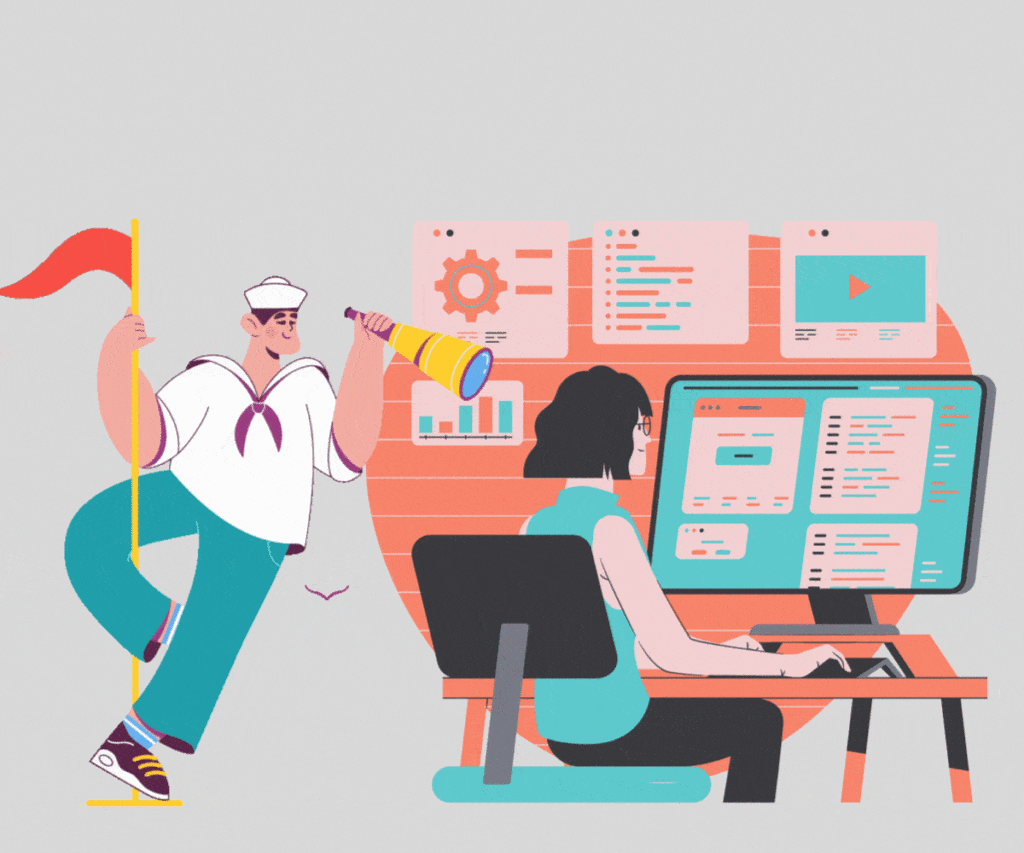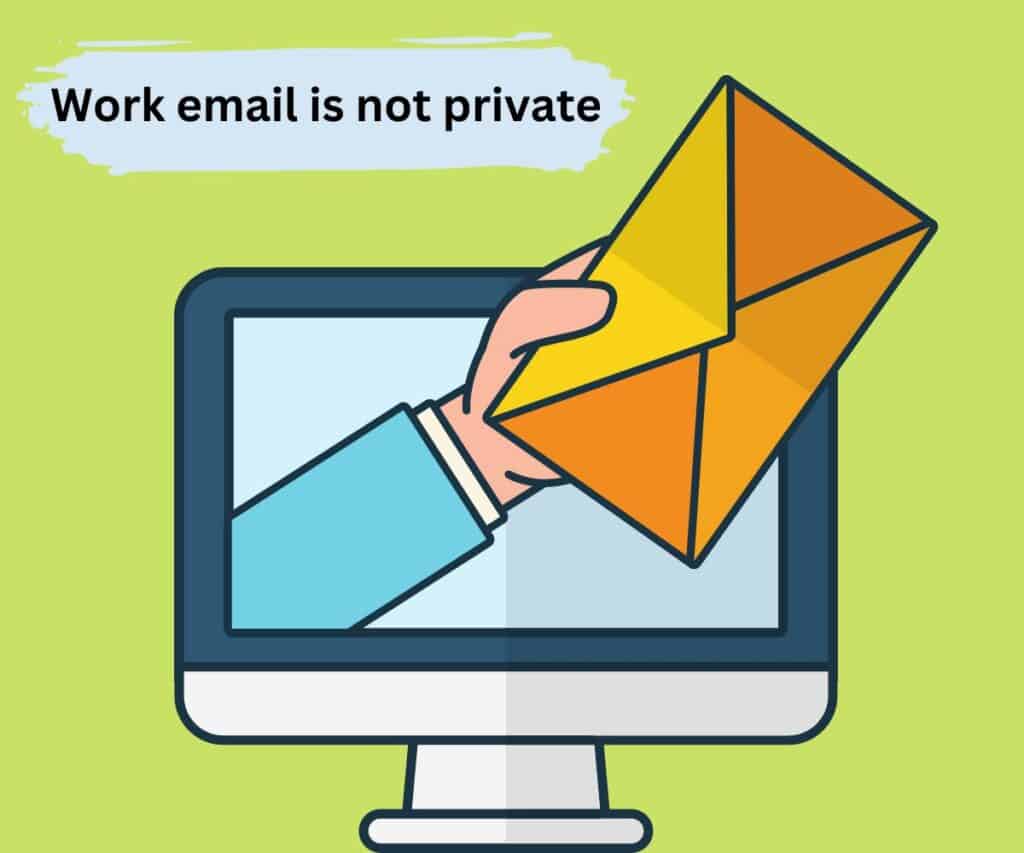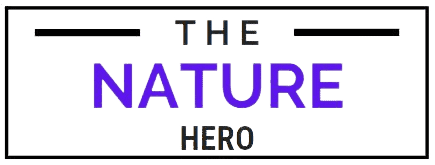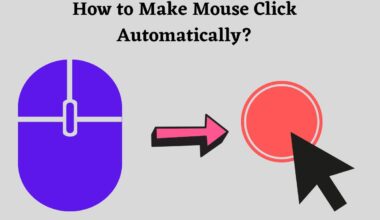Are you worried that your employer reads your work emails without your consent or notice?
Whether your employer can read your email would depend on their policy, but the fact is that your work email is never private.
However, you can privately use your work email per office policy for sharing confidential matters.
Read on to figure out the unsaid rules about work email and whether you should use your personal email at work.
Table of Contents Show
Is Your Work Email Confidential?
The unspoken rule about in-office communication is that nothing is private, including emails, chats, and calls.
This is undertaken to monitor communications that might harm the work or employer and prevent data pilferage.
It is also undertaken to maintain a strict work culture and ethics.
So, how much privacy can you expect? Here is what every law says about the employer and employee’s rights.
1. Employee Rights
- As a work computer belongs to the employer, no reasonable expectation of privacy exists when using that computer.
- Employers have the right to monitor emails assigned by the Company or those stored in the Company system.
- Your employer can take legal action if your work correspondence violates Company policy.
2. Constitutional Protection
- The fourth amendment fails to protect you from withholding your work emails used for personal use.
- Some states may extend additional constitutional protection if your correspondence does not violate the law.
3. Federal Protection
- The U.S. Congress enacted the Electronic Communications Privacy Act (ECPA) in 1986, prohibiting the interception, accession, or disclosure of one’s electronic communication.
- However, federal law may fall short regarding the Company-assigned email.
4. Personal Use
- Using personal email during work hour saves you from being monitored, but most employers would not allow it.
- Using personal email for work remains private as long as your employer allows it.
- Employers can scrutinize your email if they feel your private correspondence is affecting your performance.
An Exception That Limits ECPA(Electronic Communication Privacy Act)
- The provider exception allows employers to monitor emails exchanged through a Company-owned and supplied system.
- The business exception allows employers to monitor email on a content-related basis, whereas personal emails are private.
- The consent exception allows employers to monitor email when the employee has given consent (explicit or implicit).
However, not all employers would monitor your work email simply because they feel no need or lack the resources to do so.
Therefore, you should never use work email for personal purposes and avoid using private email for work unless allowed.
How do I Know that my Emails are Being Monitored?
Many employers inform their employees about email monitoring by giving written notice, such as in the employee handbook.
Even if your employer has no written email policy, they still have the legal right to read employee emails.
- Transmitted through Company email accounts (for example, [email protected])
- Transmitted through the Company system
- Emails received in Company email accounts
However, the employer must inform you before planning to monitor your work email for quality or security purposes.

Generally, the workplace rule is that the employer has written rules and must inform before monitoring the emails.
If you suspect your employer is email snooping without prior notice or your consent, you can detect it using a quick method.
For example, check your Outlook for signs of email monitoring.
- Open Outlook and go to Tools > Email Accounts.
- Click Change or Properties.
- Check whether the POP and SMTP server is a local or proxy.
- The server set to proxy indicates that the emails are monitored.
However, you can suspect your employer is reading your confidential emails without informing you, per the unwritten Company law.
Some Company email systems automatically copy all sent messages and create backup copies of new messages as they arrive.
Why Does Your Employer Monitor Your Emails?
There are mainly two reasons why your employer monitors your work emails and online activities
1. Work Email Is Not Private
Correspondence sent or received through the Company email account is not considered private.
Many employers may reinforce this idea by giving written notice, such as an employee handbook, or informing before monitoring the emails.

In fact, employees are often informed before serving a job contract that states the work email should not be used for personal use.
However, you can still keep your work email confidential by designating it “Work confidentially” between the concerned parties or creating a private password following office policy.
2. Personal Emails on Company Equipment
The Company’s property is anything that exists on Company equipment, such as a computer, laptop, or server.
Therefore, your work email, browsing history, and saved items in the Company equipment are subjected to surveillance.
Expect to be monitored if you are using Company equipment and have consented in writing to the employer’s monitoring of all computer use.
Is It Safe to Use Personal Email at Work?
Using personal email (Gmail.com, Yahoo.com, or Outlook.com) at work is neither safe nor advisable because you might compromise private and official correspondence.
- Personal emails lack the necessary firewall and security, making them vulnerable to hacking.
- Moreover, sending or receiving work-related correspondence through personal email leaves a wrong impression on your customers and clients.
- Using personal email may also violate compliance regulations, which presents legal risks to your organization.
- On the other hand, business email accounts have upgraded protection, making them applicable for work-related correspondences.
- However, you can use your email for private messaging if your employer permits.
Similarly, your personal email is free from monitoring as long as you use it according to official rules.
Things to Avoid in Your Work Email
Work email pertains to work correspondence; therefore, you should stick to formal culture and etiquette.
Here are some common mistakes you should avoid when using work emails.
- Using Work Email for Personal Use: Never send or receive private correspondences through your work email, and avoid signing up for a website for personal use (Social media, shopping, etc.).
- Missing Professional Standard: Work email should strictly follow a professional standard in terms of salutation, using the wrong tone of voice, using abbreviations, attaching multimedia, etc.
- Missing Email Proofreading: The drafted email should have zero grammatical or compositional errors to avoid leaving a wrong impression on the reader. Use apps like Grammarly to avoid this problem.
- Unresponded Emails: Strictly reply to the emails that require your confirmation regarding the inquiry, complaints, RSVPs, etc.
- Using Emojis and Slangs: Strictly avoid using internet abbreviations, modern slang, and emojis in work-related emails, as they are often misunderstood and frowned upon.
Conclusion
Work email is intended for work purposes, requiring using it with utmost caution.
You should do it at your discretion if you use your personal email during work hours.
Remember, using emails within work hours or using the Company’s system is subject to monitoring and scrutiny.
Related Article: How to Set Reminders in Outlook Calender?


